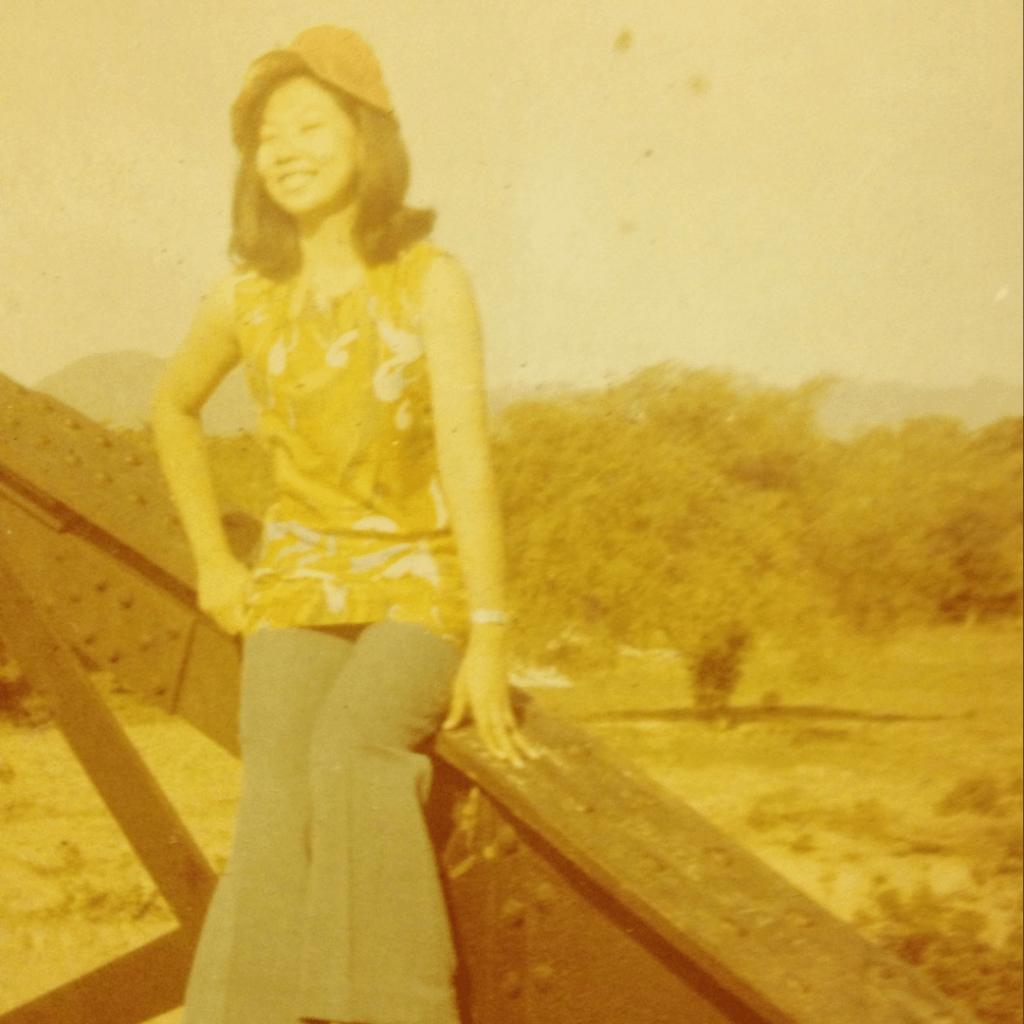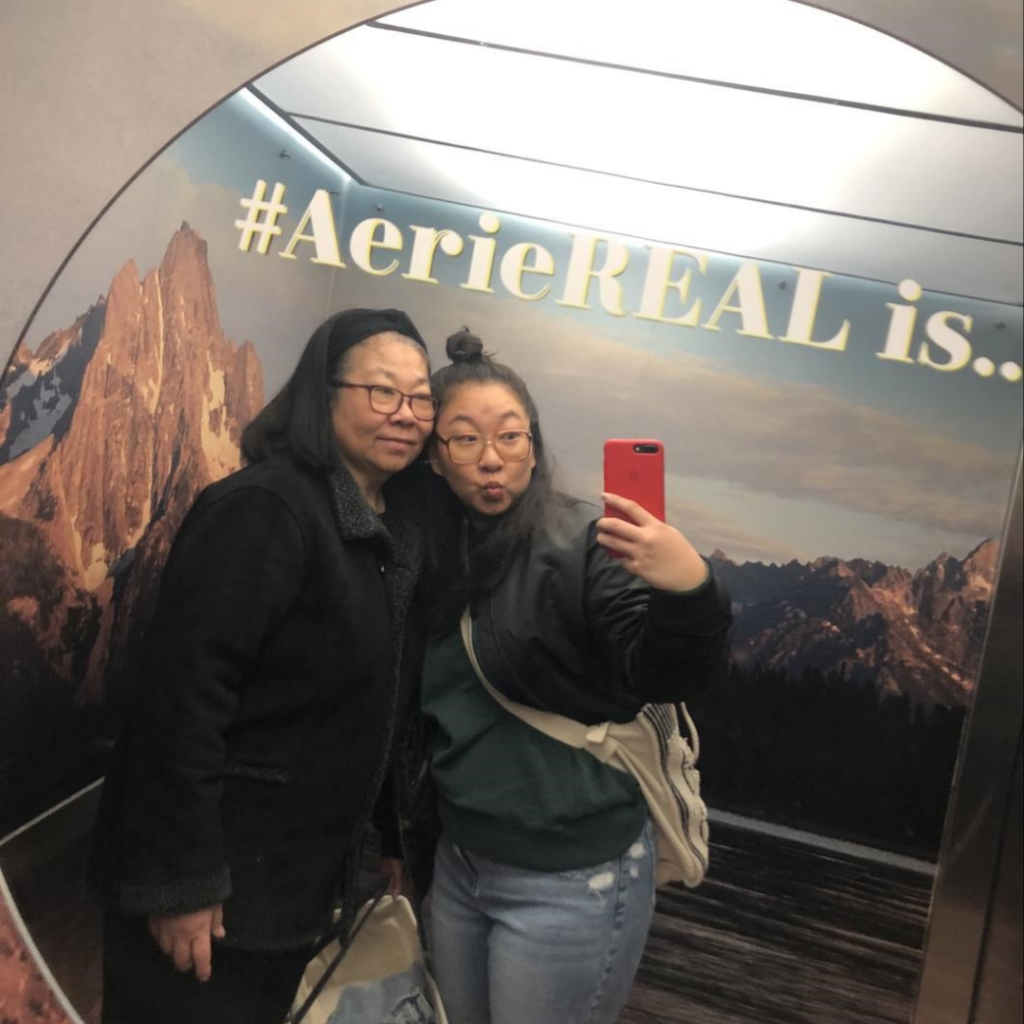May is Asian American Pacific Islander (AAPI) Heritage Month. At AEO, we are taking this time to reflect on the significance of the AAPI community as we seek to amplify their voices, stories and contributions.
Meet Kitiya P., Aerie Senior Manager, Raw Materials, whose mother and father both immigrated from Asia to the U.S. She shares with us her mother’s story of resilience and the importance of embracing your cultural heritage, below.
I’m a first generation Thai-American. My father is 100% Thai, immigrating to the D.C. area at 18. My mom, who is Thai-Chinese, immigrated in her early 20s. I was born and raised in Maryland.
My mom never finished school in Thailand. She went to a trade school to become a seamstress, then started working at a young age to help my grandparents support the family as the middle of six children. She came to the U.S. with my aunt and uncle during his diplomacy to look after my older cousin who was three at the time. She went on a whim! His diplomacy ended a few years later and my aunt and uncle returned to Thailand, while my Mom stayed in the U.S. I don’t know that I could’ve done something so brave. Anyone who knows me knows my mom is my everything, and I wouldn’t be me without her.



Growing up, both my parents worked in hotels, bars, Thai restaurants, and cafeterias. My mom also worked as a seamstress. I remember picking up loose beads in front of the carpet one day and learning how to make chicken satay at the restaurant the next. (Foreshadowing that I would be in the fashion industry with coworkers that are total foodies!). I spent Saturdays at Thai school and temple, as my mom wanted to make sure I learned the language. While my writing skills aren’t great, I’m thankful to be fluent in Thai!
We went to Thailand with my family as many summers as we could, up until I was 10. It made me feel whole. Most times growing up, I was either the only Asian or one of few Asians in my class. There wasn’t a lot of representation, so I had to lean on my family. I was embarrassed by my “weird” looking or smelling snacks. My hard to pronounce name made me feel different, and when I was younger, I just wanted to belong. I used an easier nickname for a long time, until I had an “Ah-ha! Moment.” I needed to embrace my unique and “difficult” name! Because if people can say Tchaikovsky, they can learn to say Kitiya Phongsuwan (kit-TI-ya pong-SU-won).



Most know Thailand as an amazing vacation spot, Phuket, and great food. While those are great and true, Thailand is where I get to go to Wat (temple) with my family and Yai (my grandmother) asks for protection for our family. Going to the morning and night markets on the back of a motor taxi for food made by the family my mom grew up with and has been there for generations. Eating sweets and tropical fruits with my grandparents at the marble table under the tamarind trees.
I felt sad I didn’t have the same family dynamic as others – my grandparents and cousins weren’t a short drive away, but instead a 24-hour flight away. As I got older, I realized all of those things made me unique, worldly, and cultured. It was a blessing to be different. It was always hard being the only two of our family in the U.S. We would walk into arrivals at the airport with hugs from my aunts and happy tears. And sad tears, not wanting to let go of those hugs when it was time to leave.



It still amazes me that my mom – a woman that never finished high school or college – didn’t know any English, left the amazing country of Thailand to come to the U.S. She went to ESOL classes (where I helped translate), and worked three jobs all while raising me. Combatting what I didn’t know then were racist comments and her never feeling ashamed for being different. She always fought back and stood up for herself, regardless if the words never came out right.
As I got older, we were really able to talk about racism in America and how different ethnicities experience it differently from others, breaking generational stereotypes, mental health, and body positivity vs. beauty standards. They weren’t easy conversations to have, but I’m so thankful she is open minded. My mom says I’m her lucky gift, but really I’m the lucky one.
I’m a strong, resilient Asian woman because of her. I’m forever in her debt for taking a chance to come to the U.S. We’ve come full circle, because I’m currently helping her to retire and spend some time with my Yai – who is 98 years young!
To this day, I’m still learning new stories about my family’s history. How Gong, my grandfather, fled from China to Thailand, and had to change his last name so he wouldn’t get arrested. I mean…I didn’t know I was a 1/4 Chinese until I was 12! Ask your family questions. Take videos and write the history down. We have this amazing opportunity to be the story tellers for our heritage and our families.
